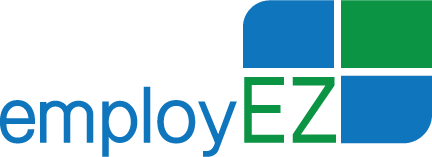Understanding your federal tax obligations as a new employer is crucial to ensure compliance with tax laws and avoid potential penalties. Navigating the complex landscape of employer tax forms and filing requirements may seem overwhelming, but with the right knowledge, you can fulfill your responsibilities with ease. In this article, we will guide you through the key forms and filing requirements for federal taxes, providing essential information to help you navigate your tax obligations as a new employer.
1. Obtaining an Employer Identification Number (EIN)
Before you dive into tax forms and filing requirements, you must obtain an Employer Identification Number (EIN). The Internal Revenue Service (IRS) assigns an EIN, a unique nine-digit number, to identify your business for tax purposes. You can apply for an EIN by completing Form SS-4 online via the IRS website or by mail or fax.
2. Employee Tax Forms
Next, employees need to complete Form W-4 to indicate their federal income tax withholding. When starting employment, new employees should provide information on their filing status, dependents, and any additional withholding amounts, if applicable. Accurately completing this form is crucial for determining the correct amount of federal income tax to withhold from their wages.
3. Employer Tax Forms and Filing Requirements
Form 941, also known as the Employer’s Quarterly Federal Tax Return, is used to report income taxes, Social Security tax, and Medicare tax withheld from employees’ wages, along with the employer’s portion of Social Security and Medicare taxes. It is filed quarterly, summarizing wages paid, taxes withheld, and any adjustments or credits.
Form 940, the Employer’s Annual Federal Unemployment (FUTA) Tax Return, reports and pays federal unemployment tax, which funds unemployment benefits for workers who have lost their jobs. This form is filed annually, providing information on wages subject to unemployment tax and any credits or adjustments.
Form 1099 is not specific to employee taxes, but is essential for reporting payments made to independent contractors or freelancers. If you hire individuals as independent contractors, you may need to file Form 1099-MISC or other specific variations to report their income. Understanding and adhering to the criteria for classifying workers as employees or independent contractors ensures compliance.
4. Tax Deposits and Deadlines
Finally, as an employer, you must make timely tax deposits as one of your federal tax obligations. The deposit schedule depends on the size of your payroll and is determined by the IRS. Complying with these deposits is crucial; moreover, reviewing the deposit schedule requirements helps ensure compliance.
The tax filing deadlines for the various forms are as follows:
- Form 941 deadline is due quarterly, by the last day of the month following the quarter’s end (April 30, July 31, October 31, and January 31).
- Form 940 deadline is due annually, by January 31, for the previous calendar year.
- Form 1099 deadline is due annually, by January 31, for the previous calendar year.
Employers can seek assistance from payroll providers or Professional Employer Organizations to comply with federal tax obligations. These providers offer comprehensive payroll solutions that streamline tax calculations, withholdings, and reporting processes, ensuring compliance with federal tax requirements.
Need help with federal tax forms and filing requirements? Simplify the process with employEZ. Visit our payroll administration page to learn more and contact us about ensuring your business stays compliant.
You also might be interested in: How a PEO Can Support Your Business in Managing Taxes


